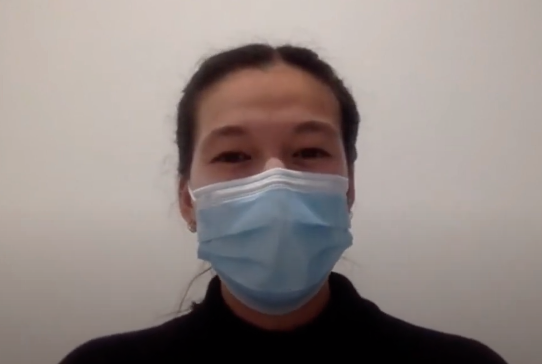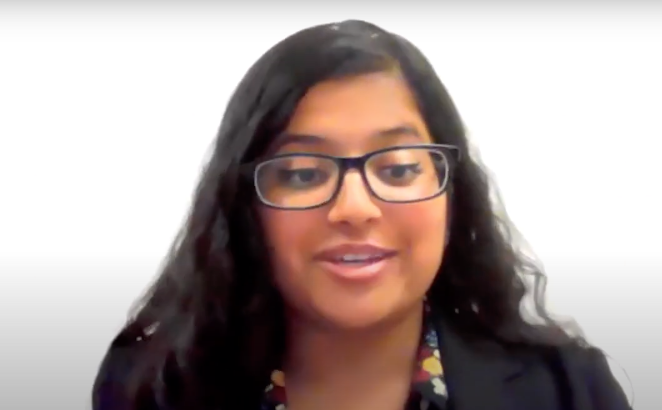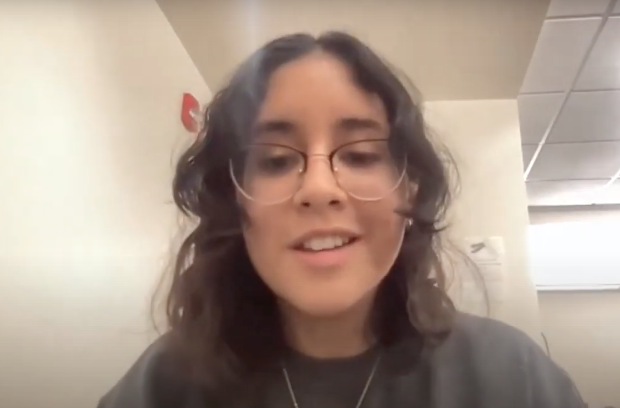Young environmental leaders reflect on UN’s COP26 Climate Conference
CivicStory and the South Orange Public Library hosted a discussion among three young environmental leaders on November 17, 2021, following the United Nations’ annual conference (COP26) to address global warming and climate change. The three speakers addressed questions from the audience and from moderators Jennie Aylward, CivicStory’s Senior Editor, and Maya Curry, Vice President of Communications and Diversity, Equity, and Inclusion at the Newark Regional Business Partnership.
Clara Cho attended COP26 as a delegate from Tufts University, where she is graduate student in the Agriculture, Food and Environment program at the Friedman School of Nutrition Science and Policy. Cho, a 2016 graduate of New Jersey’s Summit High School, said she had not anticipated that so much of the COP experience happens outside of official meetings and negotiations. She spent most of her time at COP26 attending small-scale events organized by individual countries and non-profit organizations. Cho learned that those events were the settings for high-level speakers to announce agreements to address issues like methane emissions reductions and deforestation.
“The energy of the space was really a lot more hopeful and optimistic than I was expecting,” Cho reported. “I felt like there was room for me to add my voice.”
Vinisha Patel, a first-year biology student at The College of New Jersey, noted that countries’ agreements at COP26 set the tone for decision-makers at all levels: national, statewide, and local. She described herself, at the conclusion of COP26, as both hopeful but also “very frustrated because the level of progress that needed to be made was not made.”
“You always have to have some sense of optimism” about whether the world can sufficiently address global warming, reflected Frida Ruiz, a first-year engineering student at Princeton University. But she noted that sometimes the organizers of events like COP26 offer young people the opportunity to be heard, and then exclude them from “the more important decision-making processes.” Young people need the experience of being involved, she said, so they will be prepared when they are in decision-making roles in the future.
Audience members asked questions on topics that included counteracting the lobbying of the fossil fuel industry, the importance of including agriculture in discussions on climate change, and whether COP26 participants will follow through on commitments.
In response to a question about how young people can do something about global warming, Patel said, “It may seem like you are too young and there’s too few of you to make a difference.” However, “Do not let the older generations or the ‘big people in the room’ talk down to you,” she urged. “Fight for what you believe in.”
“Don’t be intimidated” by the complexity of global warming topics, Ruiz commented, echoing Patel’s encouragement. Ruiz suggested that young people should educate themselves and “be willing to take a step out there.”
Cho described meeting college students at COP26 “who spoke on the main stage in the plenary halls, and it’s accepted in those spaces to have young people….advocating and speaking for themselves.” She offered this encouragement to young people interested in making a difference: “If you educate yourself and you want to go for it, you can absolutely make it all the way to the top.”
Click here to watch the video of the event.




